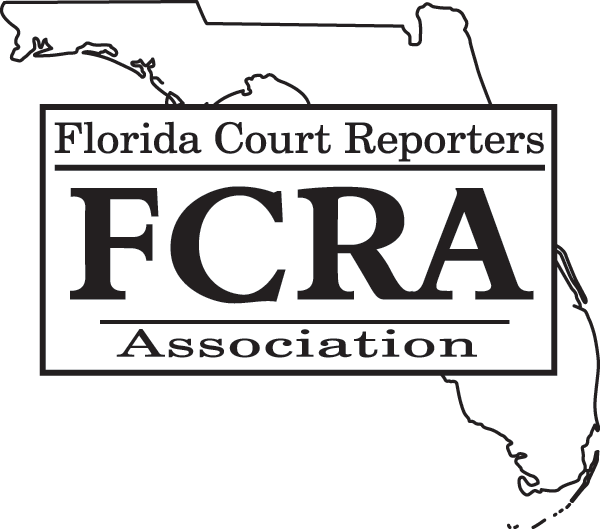Attorneys create the record. Court reporters preserve it. Since an attorney’s words may be read by appellate judges, lawyers, and future generations, a clear, concise record is of utmost importance. Following are tips, from a court reporter’s viewpoint, that will help ensure a clear and accurate record:
Before the Proceeding
- Make sure you’re hiring a qualified reporter with skills commensurate with the difficulty of the job assignment. This is especially important if a daily or expedited transcript turnaround is needed, if highly technical expert witness testimony is anticipated, or if realtime services are required. Let the reporting firm know your requirements ahead of time so they can match the right reporter to the job assignment. See Hiring a Qualified Court Reporter.
- Provide the court reporting firm with the deposition/hearing notice (style, date, time, location) at the time the assignment is scheduled.
- When realtime services are requested, if possible, provide a list of names and technical terms likely to come up in proceedings to the reporter in advance of the proceedings. This will aid in a more accurate realtime output.
- When appearing for the proceeding, don’t assume the reporter knows who you are. Provide a business card to the reporter and let the reporter know who you represent.
- Try to have copies of exhibits made prior to the deposition (one for reporter to mark as original and copies for each counsel). Have exhibit pages numbered, if possible, ahead of time so page references are clear.
- CLEAR: Turn to page 4 of Exhibit 3.
- NOT CLEAR: Please turn to – well, I think it’s about the fourth page from the back – yes, that page right there.
During the Proceeding
- Speak clearly and at a moderate pace.
- When reading, slow it down or provide the reporter with the document being read from.
- Give the cite along with the case name. If not giving the cite, spell the name while you’re looking at it.
- Let the reporter know if a common name has an alternate spelling (Greene, Smyth, Bryan).
- Spell unusual names for the reporter.
- Reporters write what is said, not what is observed. If a witness is gesturing, describe what is happening in words for the record:
- You are pointing to the base of your neck on the right side.
- Let the record show the witness is crying.
- I am pointing to the second car from the left in Exhibit 3.
- Speak objections clearly. Don’t gesture or mouth an objection and assume it’s going to make it into the record.
- Let the deponent or opposing attorney finish speaking before responding or asking the next question. Interruptions are a challenge for reporters. What can’t be heard and understood can’t be reported. Talking over your opponent or deponent will virtually guarantee it won’t be available to read later. Reporters typically write to the conclusion of the first speaker. They will try to capture what you said while you were simultaneously speaking, but, oftentimes, it is difficult for the reporter to remember what you said while writing the words of the first speaker.
- Be precise. There are many things that sound the same and can easily get confused in the record, especially when dealing with numbers and letters:
- Is it Statute 90.207 or 92.07? Vocalize the decimal point.
- Is it 82 or 80, too? Use the word “also” instead of “too” for clarity.
- Is it October 1986 or October 19, ’86?
- Is it P&S or PNS?
- State figures in full and specify if it’s a dollar amount or generic number. Make it clear where the comma, decimal, slash, hyphen, or colon goes. When you say “eleven twenty,” is it:
- $11.20 (eleven dollars and twenty cents)?
- $1,120? (one thousand, one hundred and twenty dollars)?
- 1,120 (one thousand, one hundred and twenty)?
- 11/20 (November 20)?
- 11:20 (eleven twenty in the morning)?
- Pronounce the words “and” an “in” clearly. Sometimes the context doesn’t always provide a clue to the reporter as to which one you mean.
- When using acronyms, be sure to clarify letters that sound similar (say “F, as in Frank”). The following letters can sound similar, especially when said in combination with other letters:
- S, F
- T, D, P
- B, V, D
- Is it SEC or SCC?
- When marking exhibits, numbers and decimals are easier to say and hear than letters or a combinations of both:
- Is it Exhibit D or Exhibit T? Numbers are clearer.
- Is it 1-A or 1-8? Better to say 1.1, 1.2, 1.3, etc.
- If you are an attorney that likes to place the stickers on the exhibits, do not place them in the upper right-hand corner. That area is reserved for the clerk of court.
- If you are quoting, specify the beginning and end of the quote.
- Clarify use of pronouns. It’s better to use names in place of pronouns.
- Be aware that plurals are hard to hear when followed by a word beginning with the letter S. In those instances, specify if the word is plural:
- Is it “the girl saw the man” or “the girls saw the man”?
- Be cognizant of the fact that names beginning with the same later as the last letter/sound of the word preceding it can be difficult for the reporter to discern:
- “Were Andy and Dan attending the conference?” sounds the same as “Were Randy and Ann attending the conference?”
- Try to avoid inserting affirmations, such as “yes,” “I see,” “uh-huh,” “okay,” as the witness is answering, which is oftentimes an unconscious response of people listening to someone speak, usually an indication of processing the chunks of information. This can be misinterpreted as agreement with what’s being said. It also makes the transcript difficult to read because the flow of the answer is interrupted.
- Make it clear to the reporter when you are going off the record. In court and depositions, there may be casual conversation occurring. Reporters don’t know if this will be tied in later, so they take everything down. Don’t let the reporter decide what should be on and off the record. Be sure to announce when something is off the record.
- If all parties do not agree to go off the record, it is the reporter’s obligation to stay on the record.
- The following parentheticals are used in transcripts by reporters for the following purposes:
- (phonetic) or (ph)
- The reporter is either not sure of the spelling of the word or has a question as to whether it is the correct word, so it is being spelled phonetically as the reporter heard it.
- (indiscernible)
- The reporter heard something but could not make out the word(s).
- [sic] or [verbatim]
- The person misspoke and the word is exactly what was said, not a reporter error.
- (phonetic) or (ph)
- When a reporter asks a witness to repeat something, instruct the witness to repeat exactly what was said, not give an explanation. The reporter is looking to clarify something that wasn’t heard correctly or at all.
After the Proceeding
- If the original exhibits are to be retained by the attorney or the witness, place that fact on the record.
- Clearly indicate your ordering instructions.
- If there are many exhibits that have been scattered around the table, do not rush off before the court reporter has had a chance to verify that all exhibits are accounted for. It can be easy for exhibits to get mixed in with other attorney papers inadvertently.
- Once you retrieve the transcript, if you feel there is a problem with the testimony or conduct of the reporter, contact the owner of the reporting firm and let them know about your concerns. The only way a firm can address the problem is if they know about it.
- If necessary, a Certificate on Corrections can be prepared by the reporter.
Remember, a record-conscious attorney and a qualified court reporter will guarantee the best possible record.
“VOX AUDITA PERIT LITERA SCRIPTA MANET”
The Spoken Word Vanishes…
The Written Word Remains.

